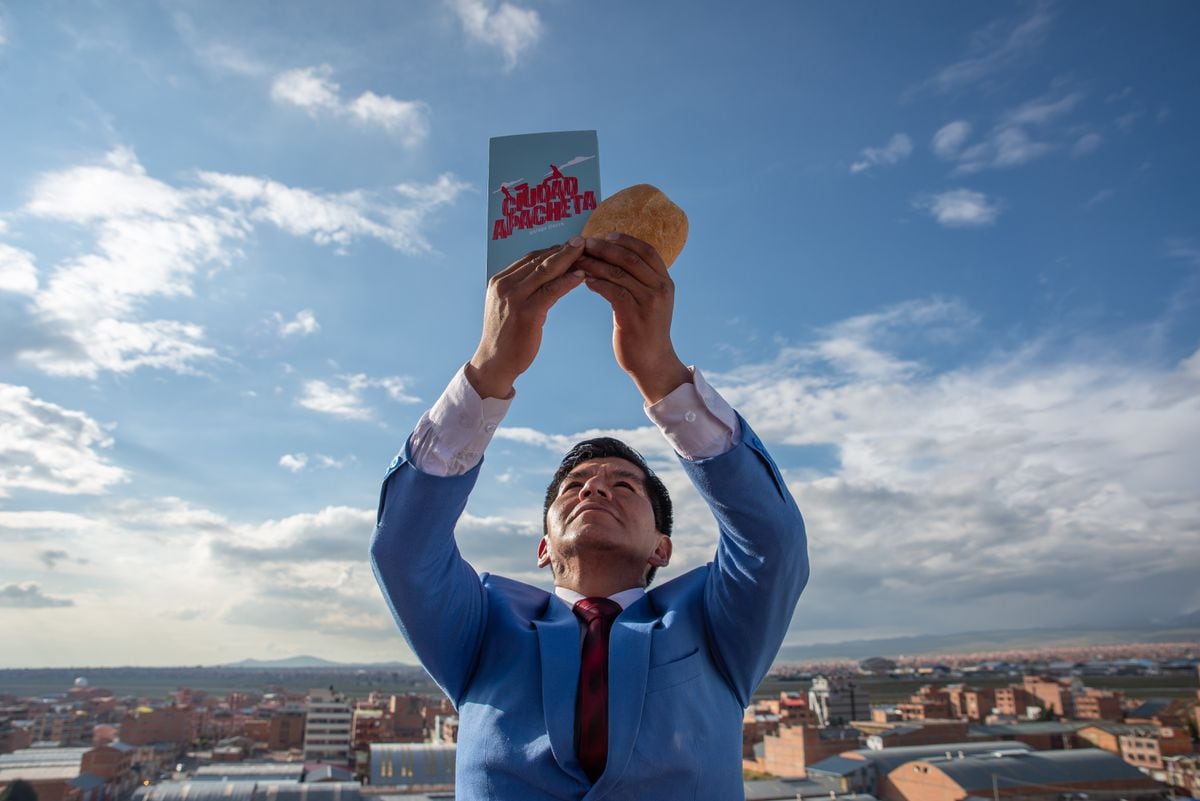Global society
all articles
Reyna Elizabeth Copa Marca, 15, just had lunch when she took the time to talk. She sits in the "Casa Nats" of the Caritas Social Pastoral in Potosí, in the institution, the girl often comes to school. NATS stands for "niños y adolescentes trabajadores", for example: working children and adolescents.
The Social Pastoral in the Bolivian mining town looks after working girls, boys and young adults between the ages of five and 25 years. Reyna is one of them, she works as a waitress in a market. Before she has to go to sports, she tells her everyday life.
"Today is Thursday, a normal day for me: school and then in the afternoon in" Casa Nats ", where we have" Talleres ", courses in which we learn about health and our rights as child laborers But it is also important that we get food here, because many boys and girls go to school in the morning without breakfast, because it is not enough at home for me, it is different for us, we do not have much, but it is so bad Not.
On the weekends I work as a waitress in a restaurant in the market of Porco. This is a smaller mining town about 50 kilometers from Potosí. Since two years I work on Saturdays and Sundays, from 9 o'clock in the morning until 6 o'clock in the evening. Sometimes longer, depending on when the last guests leave.
Every day I earn about 50 to 70 Bolivianos (6,60 to 9,23 Euro). That's not much, but it's my own money, so I help at home. If there is anything left, that is for me; I spend it on things I need for school, such as school uniforms or field trips.
Of course, I do not work primarily for fun, it's above all the financial need. I come from a poor family. My father left us at my birth, he does not support me and my four little brothers and sisters. My stepfather helps out now and then. He works in the mine, my mother sells quinoa juices on the street.
I have been working since I was six years old. At that time, I started helping my mother sell her juices. But now I earn my own money, that's something else.
I know that you see things differently in Europe, but here in Bolivia working children and adolescents are quite normal. Work also has something positive for me. I learn things for life, earn money, can help, that makes me a bit proud.
But it is essential that I do not neglect my education. That works, because I work only on the weekend. Here in Bolivia we have three different lesson times in schools: some children go to school in the morning, some in the afternoon, others in the evening. I go in the morning and then come here in the afternoon in the "Casa Nats". I enjoy going to school, I enjoy art, chemistry and physics, and I have the best grades.
At my age, it already starts that the men make stupid sayings. In the restaurants in the market of Porco eat many miners. At the weekend, when I'm working, they like to drink and make inappropriate remarks. Then I go to my boss who helps me. She treats me well.
Later, I would like to study law and then become a lawyer to defend the rights of children, because in child labor there is unfortunately also a lot of exploitation. And the authorities do not do enough to stop it, they actually do nothing to protect us.
I also heard about this law, which made it possible in Bolivia for children to work at the age of ten. That they have abolished this again, is stupid. Because in so many families, the girls and boys have to work, because otherwise not enough for all. Sometimes it's just the grandparents who make money, we just have to help out. "
(Read here the background to the dispute over the Bolivian law on child labor.)
This article is part of the project Global Society, for which our reporters report from four continents. The project is long-term and supported by the Bill & Melinda Gates Foundation.
What is the project Global Society?
Under the title Global Society, reporters from Asia, Africa, Latin America and Europe will be reporting on injustices in a globalized world, socio-political challenges and sustainable development. The reportages, analyzes, photo galleries, videos and podcasts appear in the Politics Department of SPIEGEL. The project is long-term and will be supported over three years by the Bill & Melinda Gates Foundation (BMGF).
Are the journalistic contents independent of the foundation?
Yes. The editorial content is created without the influence of the Gates Foundation.
Do other media have similar projects?
Yes. Major European media such as "The Guardian" and "El País" have created similar sections on their news pages with "Global Development" or "Planeta Futuro" with the support of the Gates Foundation.
Was there already similar projects at SPIEGEL ONLINE?
SPIEGEL ONLINE has already implemented two projects in recent years with the European Journalism Center (EJC) and the support of the Bill & Melinda Gates Foundation: The "Expedition The Day After tomorrow" on Global Sustainability Goals and the journalistic refugee project "The New Arrivals" Several award-winning multimedia reports on the topics of migration and escape have emerged.
Where can I find all the publications on the Global Society?
The pieces can be found at SPIEGEL ONLINE on the topic page Global Society.




